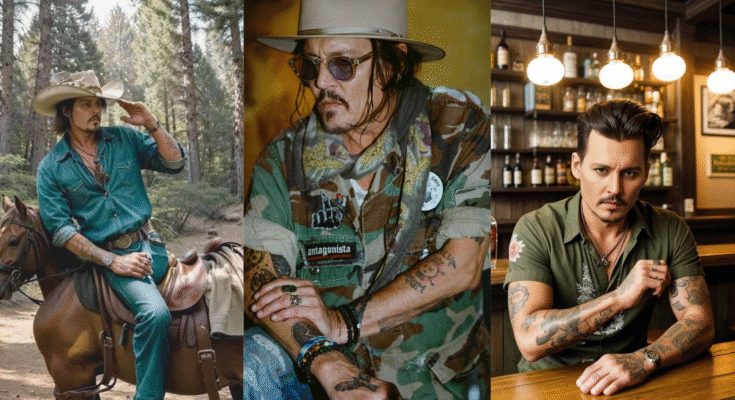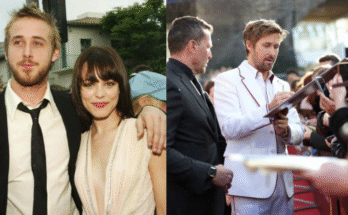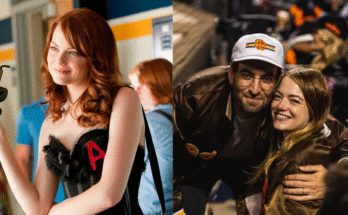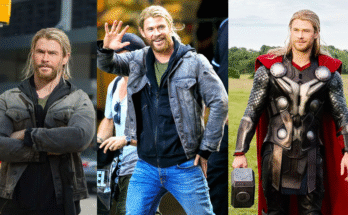The Heart Behind the Enigma: Meet Johnny Depp
Before the controversies, before the tabloid scandals, before the legal battles that consumed years of his life—Johnny Depp was a struggling musician who became one of cinema’s most transformative, fearless, and artistically ambitious actors.
His story is complex: a tale of extraordinary artistic achievement, controversial personal choices, and the brutal consequences of fame and scandal in the modern era.
How a Rock Musician Became One of Cinema’s Wildest Talents
The Beginning: Small-Town Kentucky Kid
June 9, 1963 – John Christopher Depp II was born in Owensboro, Kentucky, to John Christopher Depp, a civil engineer, and Betty Sue Palmer, a waitress and receptionist.
Johnny’s childhood was marked by:
The Family Reality:
- Parents’ marriage was troubled and eventually dissolved
- Father was emotionally distant
- Mother was more nurturing but family was chaotic
- Moved frequently (11 times by age 15)
- Never had stability or roots
The Escape: Like many kids in broken homes, young Johnny found escape in:
- Music and playing guitar
- Creating alternate identities through performance
- Imagining different versions of himself
- Finding belonging in music rather than family

The Invisible Years: From Rock Band to Acting (1980-1986)
The Musical Detour
Instead of immediately pursuing acting, Johnny started a rock band:
“The Kids” (Early 1980s):
- Garage rock band
- Local performances in Florida
- Dreamed of musical stardom
- Gigged around small venues
- Never achieved major success
The Reality Check: By mid-1980s, Johnny realized music wasn’t providing clear path forward. At age 23, he made a decision: pursue acting as a way to express himself artistically.
The Acting Beginnings: Television
Johnny’s early acting work was in television:
“21 Jump Street” (1987-1990):
- Police drama television series
- Johnny played Officer Tom Hanson
- Became teen idol and heartthrob
- Made him recognizable nationally
- Paid the bills consistently
The Irony: Johnny became famous for playing a straight-laced cop on television—the opposite of his actual artistic sensibilities and personality.
The Frustration: Rather than embrace the teen idol status, Johnny viewed it as limiting and constraining. He wanted to do challenging, artistic work—not play safe TV roles.
The Breakthrough: From Teen Idol to Serious Actor (1990-1994)
Deliberately Rejecting His Image
Johnny made a strategic decision: refuse the safe path and take artistic risks instead.
“Cry Baby” (1990):
- John Waters cult film
- Played juvenile delinquent
- Rejected clean-cut image
- Campy, eccentric role
- Showed willingness to be weird
“Edward Scissorhands” (1990):
- Tim Burton collaboration
- Iconic role as artificial boy with scissors for hands
- Showed vulnerability and sensitivity
- Became beloved by audiences
- Led to partnership with Burton
“The Nightmare Before Christmas” (1993):
- Voice role as Jack Skellington
- Stop-motion animation
- Showed range beyond live action
- Collaborating with Burton again
The Tim Burton Partnership (1990-2012)
Johnny’s collaboration with director Tim Burton became one of cinema’s greatest creative partnerships:
The Partnership’s Films:
- “Edward Scissorhands” (1990)
- “The Nightmare Before Christmas” (1993) – voice
- “Sleepy Hollow” (1999)
- “The Corpse Bride” (2005)
- “Sweeney Todd” (2007)
- “Alice in Wonderland” (2010)
- “Dark Shadows” (2012)
Why It Mattered: Burton understood Johnny’s artistic vision. They created a safe space for Johnny to explore weird, unconventional characters. These films were artistic first, commercial second.
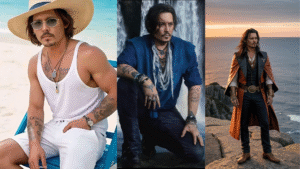
The Ascension: From Cult Hero to Superstar (1995-2005)
“Donnie Brasco” (1997) – The Dramatic Chops
Paired opposite Al Pacino, Johnny played FBI informant in crime drama.
The Performance:
- Showed ability to hold own with legendary actors
- Displayed emotional depth
- Proved he could do serious drama
- Earned respect from industry
“Sleepy Hollow” (1999) – The Tim Burton Triumph
Directed by Burton, Johnny played Ichabod Crane in gothic horror film.
The Success:
- $206 million worldwide
- Gothic, atmospheric filmmaking
- Johnny’s distinctive vision realized
- Showed he could carry major blockbuster
“The Pirates of the Caribbean” (2003) – The Unexpected Megahit
When Disney cast Johnny as Captain Jack Sparrow, few predicted what would happen.
The Performance:
- Eccentric, unpredictable pirate character
- Improvised much of the dialogue
- Created completely original character
- Academy Award nomination
- Became one of cinema’s most iconic characters
The Box Office:
- $654 million worldwide
- Launched franchise grossing $4.5+ billion
- Made Johnny bankable for massive blockbusters
- Showed commercial appeal beyond art films
The Peak: Box Office Dominance (2005-2010)
The Franchise Years
Johnny became central to multiple major franchises:
“Pirates of the Caribbean” Sequels:
- “Dead Man’s Chest” (2006) – $1.06 billion
- “At World’s End” (2007) – $961 million
- “On Stranger Tides” (2011) – $1.04 billion
- “Dead Men Tell No Tales” (2017) – $794 million
Other Major Blockbusters:
- “Sweeney Todd” (2007) – $209 million
- “Alice in Wonderland” (2010) – $1.02 billion
- “The Tourist” (2010) – $244 million
The Numbers:
- Films grossed $5+ billion by 2010
- One of most bankable actors in cinema
- Could carry major franchises and blockbusters
- Proven commercial appeal globally

The Artistic Choices: Maintaining Credibility (2000-2015)
Balancing Commercial and Artistic Work
Even during peak commercial success, Johnny chose:
Independent and Artistic Films:
- “Before Night Falls” (2000) – Independent drama
- “The Libertine” (2004) – Period drama
- “From Hell” (2001) – Gothic horror
- “Finding Neverland” (2004) – Period drama about J.M. Barrie
The Strategy: Johnny deliberately alternated between blockbuster franchises and smaller, artistic projects. This maintained creative engagement and industry respect.
“Finding Neverland” (2004) – The Career-Best
Johnny played J.M. Barrie in intimate drama directed by Marc Forster.
The Performance:
- Sensitive, nuanced portrayal
- Academy Award nomination
- Showed dramatic depth
- Earned respect from critics
- One of his best performances
The Complications: Personal Struggles and Controversies
The Eccentric Public Persona
Johnny built a public image of:
The Character:
- Eccentric and unpredictable
- Dressed unconventionally
- Tattooed and pierced (unusual for 1990s)
- Made unconventional choices
- Deliberately rejected mainstream acceptability
The Reality: This public persona masked deeper struggles with:
- Substance abuse (alcohol and drugs)
- Depression and emotional volatility
- Relationship instability
- Personal demons he battled privately
The Troubled Relationships
Amber Heard (2015-2017):
- Married actress in 2015
- Divorced in 2017
- Highly contentious separation
- Led to major public dispute
The Legal Battle (2020-2022):
What happened next would define Johnny’s legacy in complicated ways:
The Defamation Lawsuits:
- Amber Heard wrote op-ed about domestic abuse
- Johnny sued for defamation
- Highly publicized trial in 2022
- Trial was televised and discussed globally
- Johnny won significant judgment
The Complexity: The trial revealed:
- Allegations of abuse from both sides
- Substance abuse and volatile behavior
- Recording of disturbing conversations
- Personal failures and mistakes
- Complex, troubled relationship
The Impact:
- Damaged Johnny’s reputation significantly
- Showed vulnerability and flaws
- Created empathetic understanding for some
- Created anger and judgment from others
- Demonstrated consequences of toxic relationships
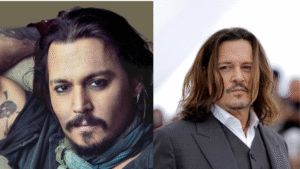
The Decline: From Superstar to Controversial Figure (2015-2022)
Box Office Decline
After the legal battles, Johnny’s box office power diminished:
Roles Declined:
- Studios became cautious about his involvement
- Major franchises moved on without him
- Independent filmmakers hesitant to work with him
- Controversial figure status affected opportunities
The Roles He Could Get:
- Smaller roles in independent films
- Limited major blockbuster opportunities
- Focused on European and independent cinema
- Worked with more adventurous directors willing to take risks
The Later Work: Adaptation and Survival (2022-Present)
“Fantastic Beasts and Where to Find Them” (2016-2022)
Johnny played Gellert Grindelwald in Harry Potter spinoff series.
The Controversy:
- Cast despite allegations
- Faced backlash from fanbase
- Pressure to step down
- Eventually replaced by Mads Mikkelsen
Post-Trial Work
After winning defamation case, Johnny pursued:
European Collaborations:
- Worked with French directors
- Independent films
- Art house cinema
- Lower-profile but artistically interesting work
The Attempt at Comeback:
- Some viewed trial victory as redemption
- Others remained skeptical about allegations
- Complex public narrative
The Secret Behind Johnny’s Transformation Ability
Lesson 1: Artistic Risk-Taking
Johnny succeeded by taking risks others wouldn’t take. His willingness to play weird, unconventional characters made him memorable.
Lesson 2: Creative Partnerships
His partnership with Tim Burton proved that collaborative relationships with visionary directors create the best work.
Lesson 3: Balancing Commercial and Artistic
By alternating between blockbuster franchises and intimate dramas, Johnny maintained both commercial viability and artistic credibility.
Lesson 4: The Danger of Personal Demons
Johnny’s story also shows the danger of unaddressed personal struggles. Even the most talented artists can be derailed by substance abuse, relationship instability, and personal chaos.
Lesson 5: The Price of Fame
Johnny’s fall illustrates that fame and success don’t solve internal problems. Without addressing underlying issues, success can amplify them.
The Controversial Legacy
The Complication
Johnny’s story is intentionally complicated to avoid:
The Reality:
- Extraordinary artistic talent
- Serious personal problems
- Allegations from multiple sources
- Substance abuse issues
- Relationship instability
- Complex legal battles
- Questions about accountability
What Complicates Simple Narratives:
- All humans are complex
- Both/and truths exist (talented AND problematic)
- Legal victories don’t erase all concerns
- Public support doesn’t validate all behavior
- We can recognize artistry while acknowledging flaws
The Journey: Before & After
| Aspect | The Struggling Musician (1980-1986) | The Peak (2000-2010) | The Complicated Present (2020-Present) |
|---|---|---|---|
| Recognition | Unknown musician | Global superstar | Controversial figure |
| Financial Status | Struggling musician | $200+ million net worth | Reduced but still wealthy |
| Career Control | Limited, taking any role | Choosing top projects | Limited major opportunities |
| Box Office Power | None | $5+ billion from films | Declined significantly |
| Awards Recognition | None | Multiple nominations | Limited recognition |
| Public Persona | Eccentric outsider | Beloved eccentric | Controversial controversial |
| Industry Respect | Building | Universal respect | Divided respect |
| Personal Stability | Chaotic | Chaotic | Chaotic |
| Creative Partnership | None | Tim Burton | European directors |
| Public Narrative | Artist | Star | Problematic figure |
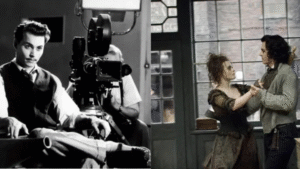
The Bottom Line: A Complex Legacy
Johnny Depp’s story cannot be simplified into a clean narrative of triumph or failure.
He proved: ✓ Artistic risk-taking creates memorable work ✓ Creative partnerships elevate output ✓ Blockbuster success and artistic credibility can coexist ✓ Transformative acting can captivate audiences ✓ Personal demons can undermine even extraordinary talent
He also demonstrated: ✗ Substance abuse has serious consequences ✗ Relationship toxicity destroys careers ✗ Fame doesn’t solve internal problems ✗ Accountability matters ✗ Controversial figures face reduced opportunities
Key Takeaways: The Complicated Truth
🎭 Artistic risk-taking creates memorable work, but requires stability 🎭 Creative partnerships with visionary directors matter 🎭 Balancing commercial and artistic work prevents burnout 🎭 Personal demons undermine even extraordinary talent 🎭 Unaddressed struggles compound over time 🎭 Accountability is crucial for redemption 🎭 Complex people can create extraordinary art 🎭 Fame without personal growth creates disaster 🎭 Both/and truths exist (talented AND problematic) 🎭 Legacy is complicated when character is complicated
Johnny Depp’s Defining Words
“The only way that we can grow is to challenge ourselves.”
“My property in England, I own. And I love, I absolutely love the property.”
“One thing I have never been afraid of is to take risks, to go a different route.”
“I make movies just as I paint or write—for the sake of the exercise and because I have something to express.”
The Continuing Evolution
In his 60s, Johnny continues to navigate:
- Limited but selective film work
- European collaborations
- Attempts at career rehabilitation
- Public perception challenges
- Personal life complexities
- Artistic pursuits beyond acting
The Real Johnny Depp Story:
A complicated narrative that includes:
- Extraordinary artistic talent and transformative performances
- Visionary creative partnerships that created masterpieces
- Serious personal struggles with substance abuse
- Relationship instability and toxic behavior
- Legal battles and accountability questions
- Attempt at career continuation despite controversy
- Proof that talent doesn’t equal character
- Demonstration that public narratives are complicated
Johnny Depp’s legacy will always be contested and complicated, because he is a complicated person who created extraordinary art while engaging in problematic behavior.
That’s not a simple story. But it’s an honest one.
